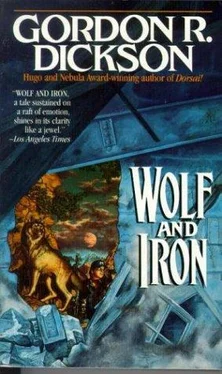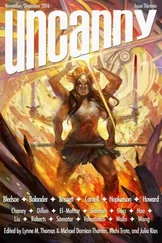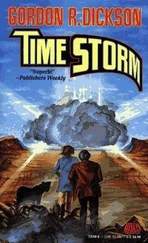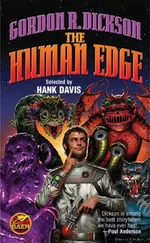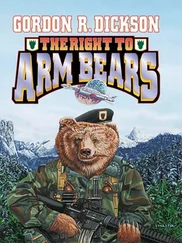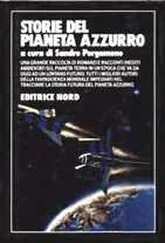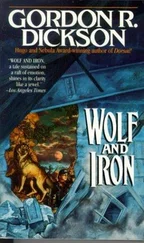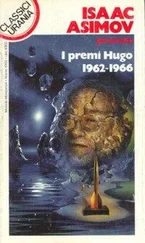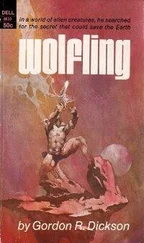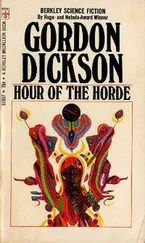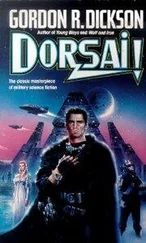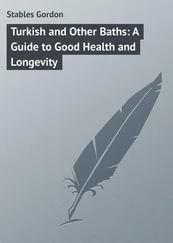“Yes,” Jeebee said after a moment, unable to think of what else to say.
“I hoped as much,” Paul said, still to all appearances talking to the team ahead. “That’s one reason I wanted her to go with you.”
This time Jeebee didn’t glance at him.
“I thought there was no choice,” he said. “You couldn’t leave the wagon, and Nick—”
“Oh, I could have left.” Paul took his pipe out of his mouth, blew a jet of smoke, and glanced up at the few clouds dotting the blue sky ahead of them. “It wouldn’t have been as smart as you two going. But Merry could have handled this wagon by herself if she’d ended up having to. She knows all there is to know about it. She still can’t handle customers like I can, but most of them know her, and she knows how she ought to deal with them. Nick would work for her. No, if I’d thought it was really best, I could have been the one to go with you. I just thought it was better she did.”
Jeebee drove in silence for a few seconds, letting these last words sink into him. Plainly, the silent understanding he and Merry had come to was obvious; at least to her father, and probably to Nick as well.
Jeebee decided to accept the fact.
“It wasn’t easy,” he said.
“Didn’t figure it would be,” Paul said, puffing on his pipe. “Most important things aren’t.” Jeebee laughed unhappily.
“You’re right about that.” He glanced ahead and up at the clouds, himself. They seemed to be moving, following the way ajking with the wagon, although he knew that this was only an illusion. Still, for the moment, seeing them seem to move, it was as if the wagon was holding its place while the earth turned underneath it, so that once he left it and those riding it, the rotating world itself would carry him away from them.
It was both strange and hard for Jeebee to admit to himself that he had come to feel so close, not merely to Merry, but to Paul and Nick. Close enough so that he was torn at the thought of parting with them. It was even harder and stranger yet to accept the fact that they might have become fond of him in reciprocal measure.
But evidently that was the way it was. His whole life had taught Jeebee to trust his perceptions. Faced with a problem—physical, mental, or emotional—his instinctive reaction was to take it apart and find out why it was the way it was, as he might have done with an unfamiliar mechanism that was not working, like the nonworking alarm clocks of his childhood.
This need to dismantle and understand was instinctive in him. As a result, he faced the fact that the present times were simply those in which friendships could come more strongly and more suddenly than they had in the earlier, more technological years.
At the same time it was part of what they all had to do for survival’s sake. He and Merry could not stay together. Paul could not give him in trade anything he had not earned or paid for, no matter how much the other had come to like him. There was a point now at which charity became unnecessary sacrifice, and unnecessary sacrifice became self-destruction.
Still, as they rode now through the hours before stopping, he and Paul discussed what Jeebee would take by way of payment for his gold and the seed he had brought back. Jeebee had not realized that he would have to make choices. He could have a horse to ride and a packhorse. Beyond that Paul strongly suggested that he take traps to support an appearance as a trapper, if nothing else. That would at least identify him as someone other than a raider.
“No,” Jeebee had said, “there’d be too much risk for Wolf if I started setting traps around.”
He had seen the twin jaws of the metal traps, with their offset teeth and stiff springs, and the part of him that was likely to feel for anyone and anything had imagined itself as an animal with a leg caught by those jaws.
“Suit yourself,” Paul told him, “but I’ll tell you one thing. I haven’t got any cold-weather clothing to trade you. I don’t visit my customers during the winter season, and the room I have for goods is limited, so I just don’t carry that sort of thing. That means you’re going to have to make your own warm clothing. I can give you heavy needles and thread, and instructions on how to tan and use hides. You think you can take it from there?”
Jeebee nodded.
“The thing is,” said Paul, “it’s you, yourself, who’s going to have to produce them when it comes time for them, when the snow and ice season comes. One of the best ways to fit yourself with winter clothes is to use animal pelts, fur and all, and there’s only two ways to get them. One is shooting, the other’s trapping. Trapping’s more practical for you.”
“I’ll still take my chances shooting,” said Jeebee. “What else can you give me?”
It turned out that what Paul was able to give him, not only for the seeds he had gathered with Merry but for the valuable knowledge of the location of the seed farm, were the two horses complete with saddle and packsaddle, bridles, halter ropes, and saddle blankets. Also ammunition, for Jeebee’s two rifles, cooking utensils, some light clothing, salt, and bacon. Also, Paul had thrown in a variety of lesser camp supplies.
“Now,” Paul wound up, “some of these seeds can be yours. If they’re really designed for northern crops, you’ll want to plant a seed source for yourself. If so, and you can meet me along about here, this time each year, with some sacks of clean, good seed, we can make a regular business out of trading for it. Or if it turns out I can get rid of either the seeds or gold for more than I think, I’ll make up the difference to you next time we trade. Fair enough?” “Fair enough,” Jeebee said.
They pulled into camping position by the side of the road while there was still a good two hours of daylight left. Jeebee unharnessed the team and put the horses from it back with the rest of the string that Merry was settling for the night. Then, with both Merry and Nick in attendance as well as Paul, both his saddle and packhorse were picked out.
Jeebee had known nothing about horseflesh three months before. He knew only a little bit more now; but he had picked up enough to appreciate that he was getting two good animals. His riding horse was a large bay, and his packhorse was a small but sturdy-legged black-and-white-splashed mare, calm and agreeable. She had been one of the packhorses on their seed trip.
Jeebee knew of, if not all about her. Her name was Sally. The bay, Brute, was one of the wagon’s horses he had never ridden. He saddled Brute now with the saddle that Paul produced, to try both of them out. It was a good saddle, he thought. But Brute clearly had a mind of his own and a somewhat uncertain temper. However, he, too, was good in all the essential ways. Jeebee rode him around for some five minutes, ending up putting him into a full gallop back along the roadside for a hundred yards or so before turning around and coming back to the wagon. Brute was both fast and strong, and his wind was good.
“I like him,” said Jeebee. “In fact, I like them both.”
“They’re good horses!” said Merry.
“I figured so,” Jeebee said hastily. “I just thought you’d like to know that I liked them.”
“Always good to hear that,” Paul answered.
They unsaddled Brute, gathered all of Jeebee’s goods and possessions together in one spot near the front of the wagon, and Nick got started on planning dinner.
Meanwhile Paul dug back in among his trade goods and came up unexpectedly with a bottle of sour-mash bourbon and four glasses.
“Where did you get this?” Jeebee asked. He knew that Paul did not like to be questioned about where his goods came from. He had picked up that much almost by osmosis, in the time he had been with the wagon. But the words were out before he could stop them.
Читать дальше
